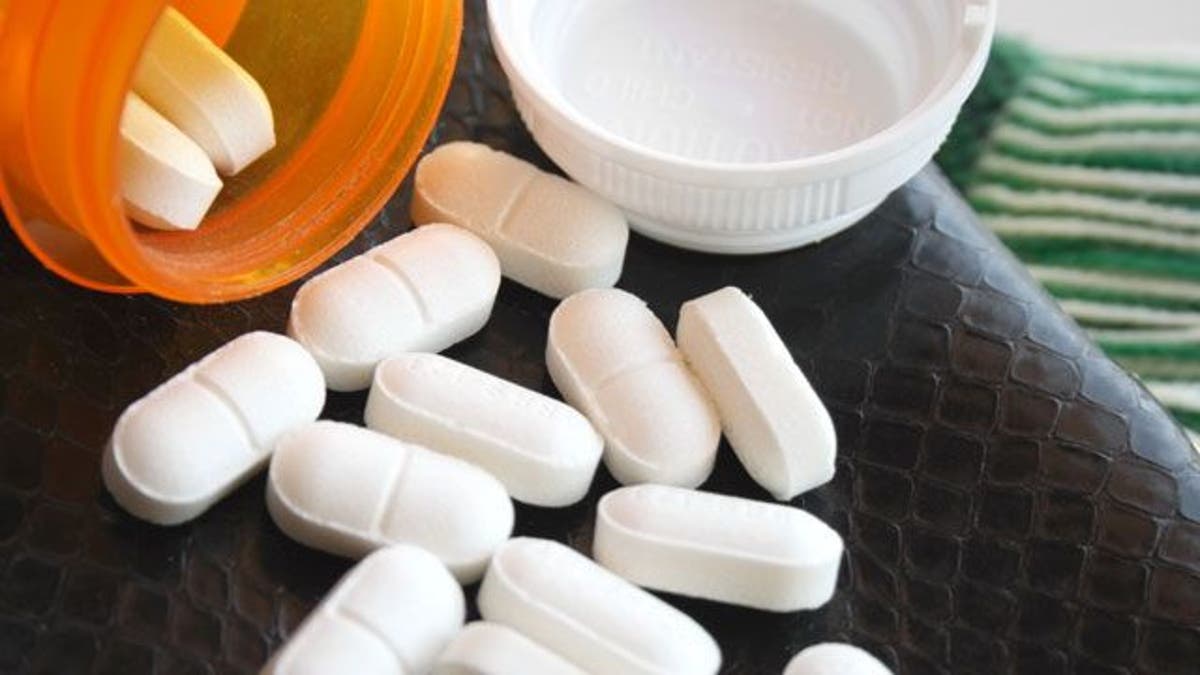
Oxycontin. Vicodin. Percocet. Opiates like these can make the agony of surgery or cancer more bearable. But potent painkillers come with serious risks—namely addiction and even death.
That’s why health experts have repeatedly warned against their overuse—especially for those with less-severe complaints. But a new report raises questions about whether people are listening.
The findings: Researchers at Beth Israel Deaconess Medical Center in Boston analyzed the records of more than 1 million patients hospitalized for reasons other than surgery, finding that more than half were given some opioid pain medications, such as codeine, morphine, or oxycodone. Of those, one-quarter received the equivalent of 100 milligrams of morphine at one time—enough to pose the risk of overdose, says study author Dr. Shoshana Herzig.
Find the best ways to tackle nagging pain with the 6 Smartest Ways to Beat Pain.
The study couldn’t assess exactly whether all these doses were needed. However, the high rate suggests at least some of them weren’t.
Why We’re So Drugged Up
Doctors have good reasons for doling out these doses. National medical organizations have instructed them to treat pain as a vital sign just like blood pressure or heart rate, Dr. Herzig says. And no physician wants a rep as someone who ignores suffering, says Dr. Kenneth Candido, an anesthesiologist at Advocate Illinois Masonic Medical Center in Chicago.
You play a role, too. No stethoscope or lab test can measure pain, so doctors typically ask you to report your discomfort levels on a scale of 1 to 10. Many people struggle to assign a number to agony—everyone experiences pain differently and some tolerate it better than others, Dr. Candido explains. More often than not, patients exaggerate their pain—sometimes on purpose, to get more of the numbing, mind-altering effects of these drugs, Dr. Candido says.
Know what symptoms warrant a trip to your doctor: Learn the 7 Pains You Shouldn’t Ignore.
High doses may also stem from patients failing to tell their doctors about prescription or illegal drugs they’re taking at home, he says. And if you doc doesn’t know what you’re pumping into your bloodstream, he may be more likely to write a script. But you should tell your doc of habits at home: Drugs like Valium or even heavy drinking can interact dangerously with narcotics, or make you resistant to their pain-killing effects.
Know this: If your pain is so searing you can’t tolerate it—and milder drugs or techniques don’t help—opioids could be your best choice. But often, that’s not the case. Protect your own health with these suggestions:
• Ask whether your hospital employs pain physicians. These doctors have special training in both using narcotics properly and offering alternatives for pain relief, including nerve blocks and distraction techniques. “Not every doctor has these tools in their armamentarium,” Candido says.
From medication mix-ups to dirty hands, we found the 8 Secrets Your Hopital Keeps.
• Some doctors assume once you’re in the hospital, your pain is severe, Herzig says. But in many cases, plain old ibuprofen might actually work better since it treats swelling and inflammation. Ask if there are other options—you’ll take your doc off autopilot.
• About one-fourth of all the patients in the study got a dose of opiates on the day they left the hospital, suggesting they may have walked out with a prescription, Herzig says. Before you fill a script, make sure your doctor has run it through the state-monitoring database. This will cut down on too-high doses.
And while you're at it, make sure you know the top 10 Questions Every Man Must Ask His Doctor.
